Related Projects
Related Publications
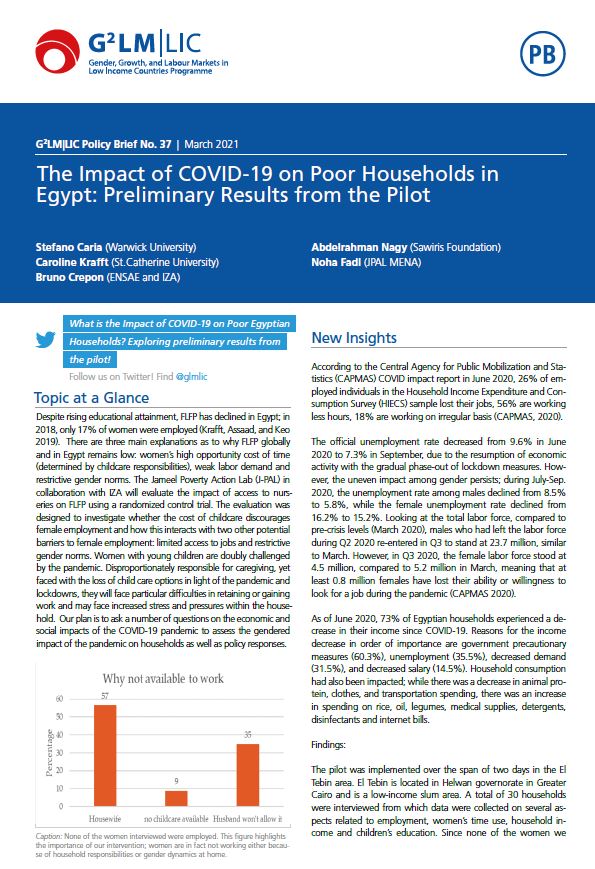
G²LM|LIC Policy Brief No. 37
The Impact of COVID-19 on Poor Households in Egypt: Preliminary Results from the Pilot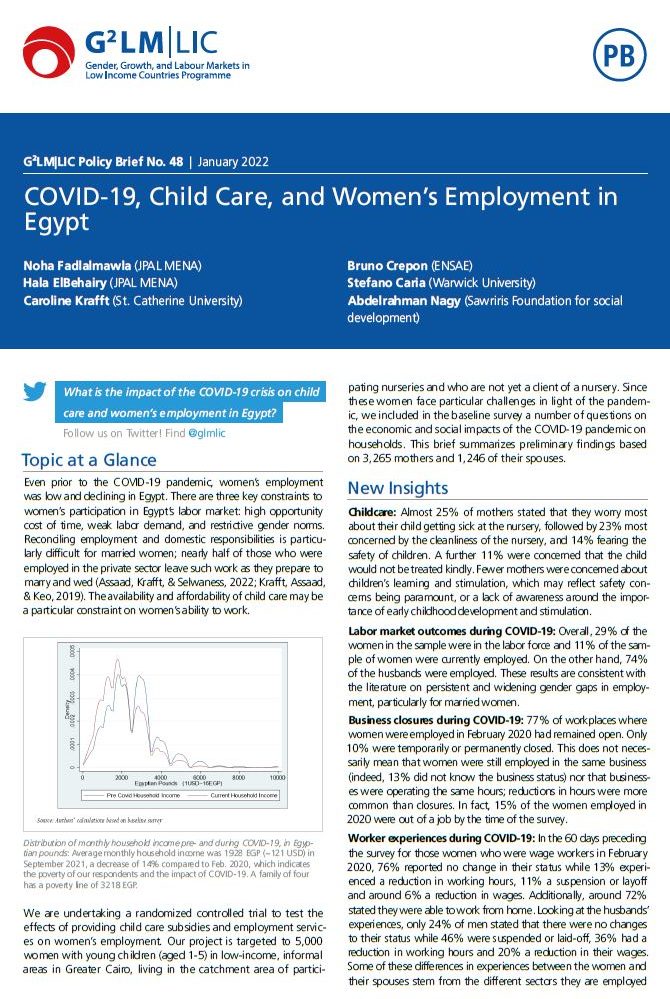
G²LM|LIC Policy Brief No. 48
COVID-19, Child Care, and Women’s Employment in Egypt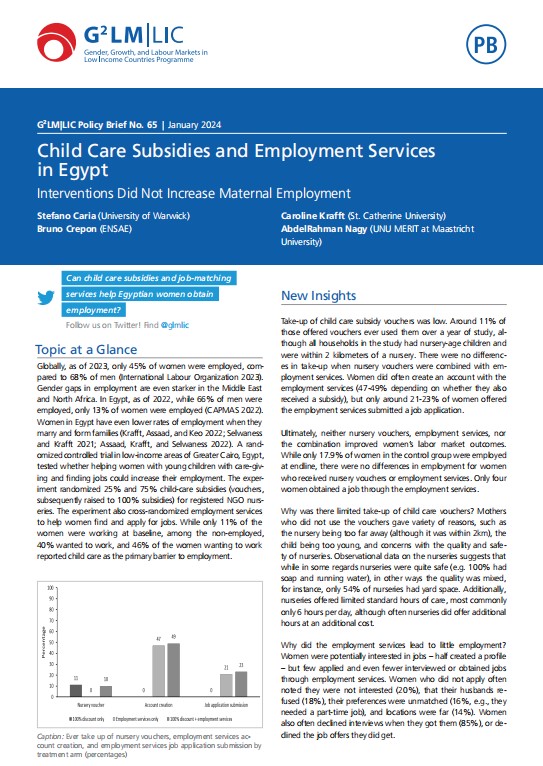
G²LM|LIC Policy Brief No. 65
Child Care Subsidies and Employment Services in Egypt
G²LM|LIC Working Paper No. 61
Assessing the labor market impact of COVID-19 on women with young children in Egypt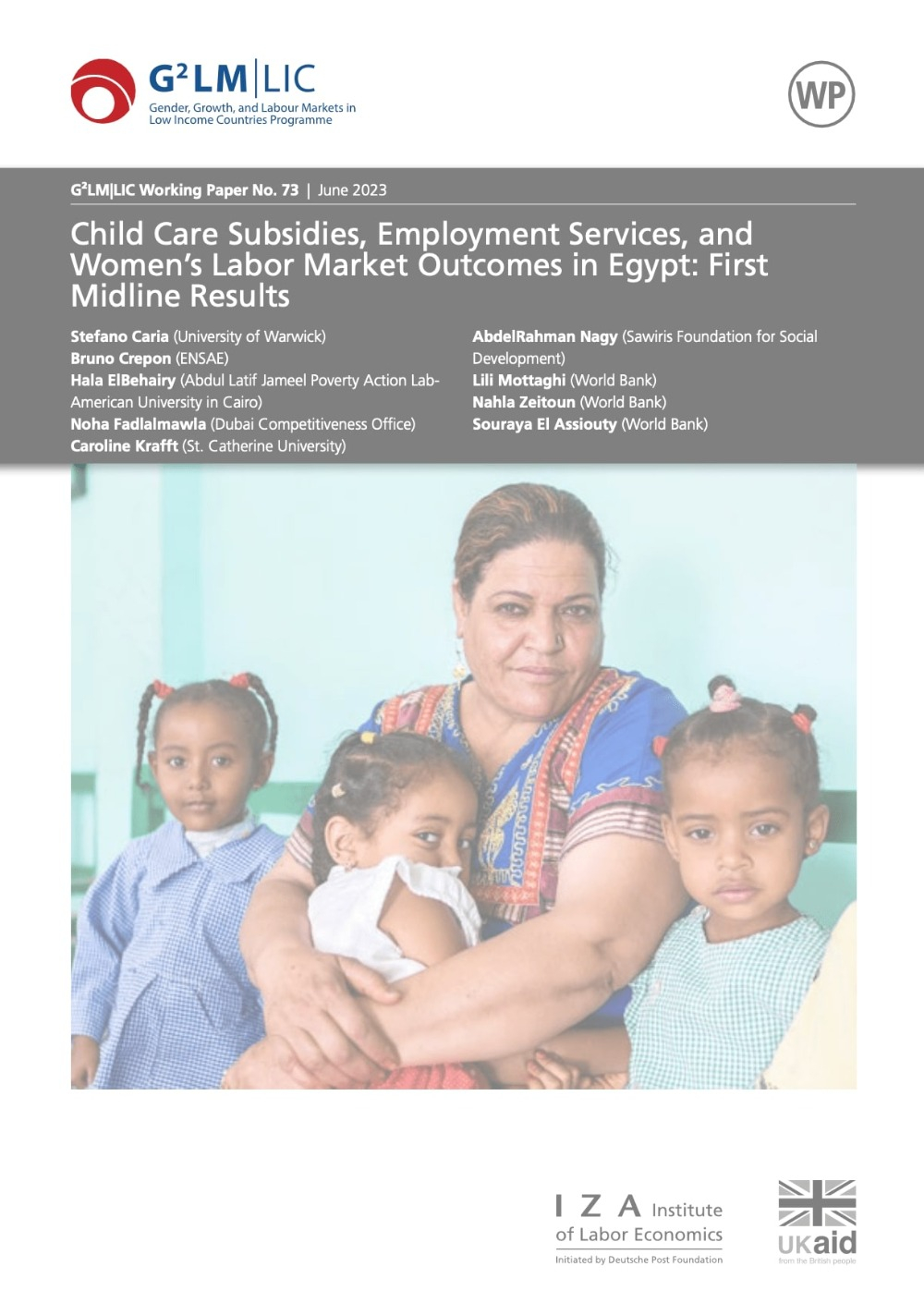
G²LM|LIC Working Paper No. 73
Child Care Subsidies, Employment Services, and Women’s Labor Market Outcomes in Egypt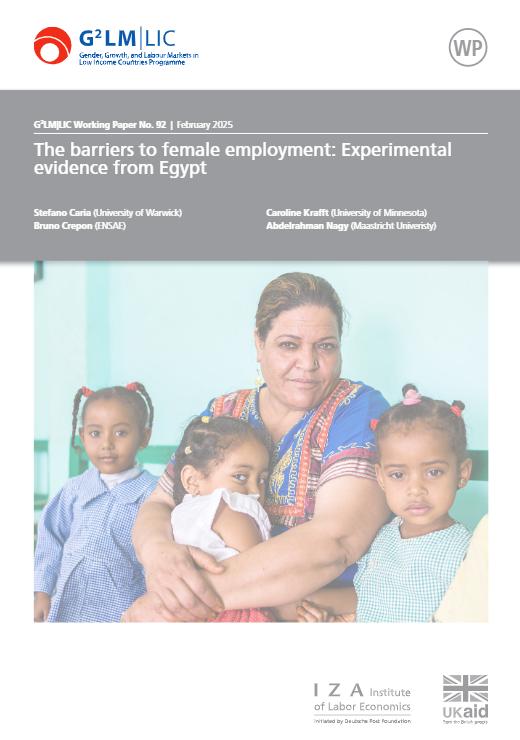
G²LM|LIC Working Paper No. 92
The barriers to female employment: Experimental evidence from Egypt
